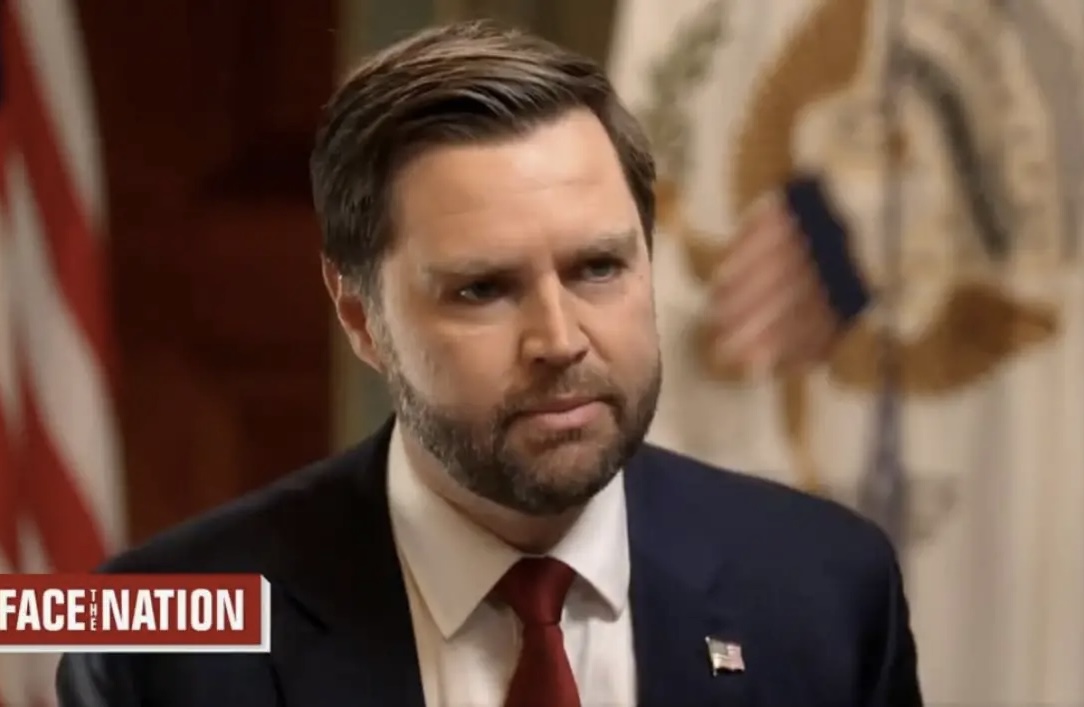Vance Responds Strongly to CBS Host Brennan’s Criticism of Tulsi Gabbard
In a recent heated interview, Vice President J.D. Vance strongly defended Tulsi Gabbard’s qualifications for the role of Director of National Intelligence, after CBS anchor Margaret Brennan criticized her candidacy. The exchange quickly shifted from a typical political discussion to a focused debate on Gabbard’s background and the media’s portrayal of her. Brennan cited conservative outlets like The Wall Street Journal and National Review, which had published harsh critiques of Gabbard’s past positions, questioning her ability to lead the nation’s intelligence community. She accused Gabbard’s critics of selectively using headlines to create a distorted narrative about her.
Vance, however, rejected Brennan’s argument, claiming that such criticisms ignored the broader context of Gabbard’s career. He argued that these media outlets were cherry-picking isolated remarks and overlooking her extensive military experience and longstanding involvement in national security. According to Vance, Gabbard’s qualifications were built on nearly two decades of military service, top-level security clearances, and her commitment to intelligence reform, not on a few out-of-context statements.
Gabbard’s career as a U.S. representative and her military background have earned her a reputation as a knowledgeable and principled figure in national defense. Her nomination for Director of National Intelligence has become controversial, as some see her as a fresh voice capable of reforming a bureaucratically entrenched system, while others focus on past policy stances that raise doubts about her judgment. Vance dismissed these concerns, suggesting that partisan disagreements should not overshadow her qualifications for the position.
The debate also raised important questions about the media’s role in shaping public perceptions. Critics of Gabbard have often relied on selectively edited quotes and reports to paint her as unqualified, while ignoring the full picture of her service. Vice President Vance’s defense of Gabbard’s record during the CBS interview was aimed at countering these narrow narratives. He emphasized that, rather than focusing on controversial soundbites, the media and the public should consider her full history of service, which he argued showed a dedicated public servant with the experience to lead the intelligence community.
This exchange also highlights a broader challenge in modern media and politics: the impact of selective reporting. In today’s media environment, it’s common for outlets to emphasize certain narratives at the expense of a more balanced portrayal. When issues like national security are discussed through the lens of partisan bias, it becomes difficult for the public to form an informed opinion based on the full scope of a nominee’s qualifications. Vance’s critique of this selective approach calls for a more nuanced and comprehensive discussion of leadership roles in national security.
The conversation between Vance and Brennan also reflects the ongoing tension between media outlets and politicians, where the public’s understanding of important issues is often shaped by incomplete or biased reporting. The role of media in framing national debates is crucial, as it influences not only public perception but also political outcomes. This exchange underlined the importance of scrutinizing the credentials and records of candidates, not just through the lens of headlines, but by considering their entire body of work and vision for the future.
Gabbard’s nomination represents a defining moment for national security leadership, with the potential to bring much-needed reforms to the intelligence community. The debate surrounding her nomination underscores the need for transparent and thorough discussions about the future of U.S. intelligence, free from political bias. As the confirmation process continues, it is essential that both the media and the public engage in thoughtful, fact-based dialogue about the candidates who will shape the nation’s security.
Ultimately, the exchange between Vance and Brennan serves as a reminder of the importance of balanced, well-informed debates in the democratic process. The future of U.S. intelligence—and the broader national security strategy—depends on clear leadership and the ability to make decisions based on complete, accurate information. In this context, the debate over Gabbard’s nomination is more than a political contest; it is a critical conversation about the direction of national security leadership and the integrity of the process itself. As the conversation unfolds, it highlights the need for transparency, accountability, and the value of informed, nuanced decision-making.
